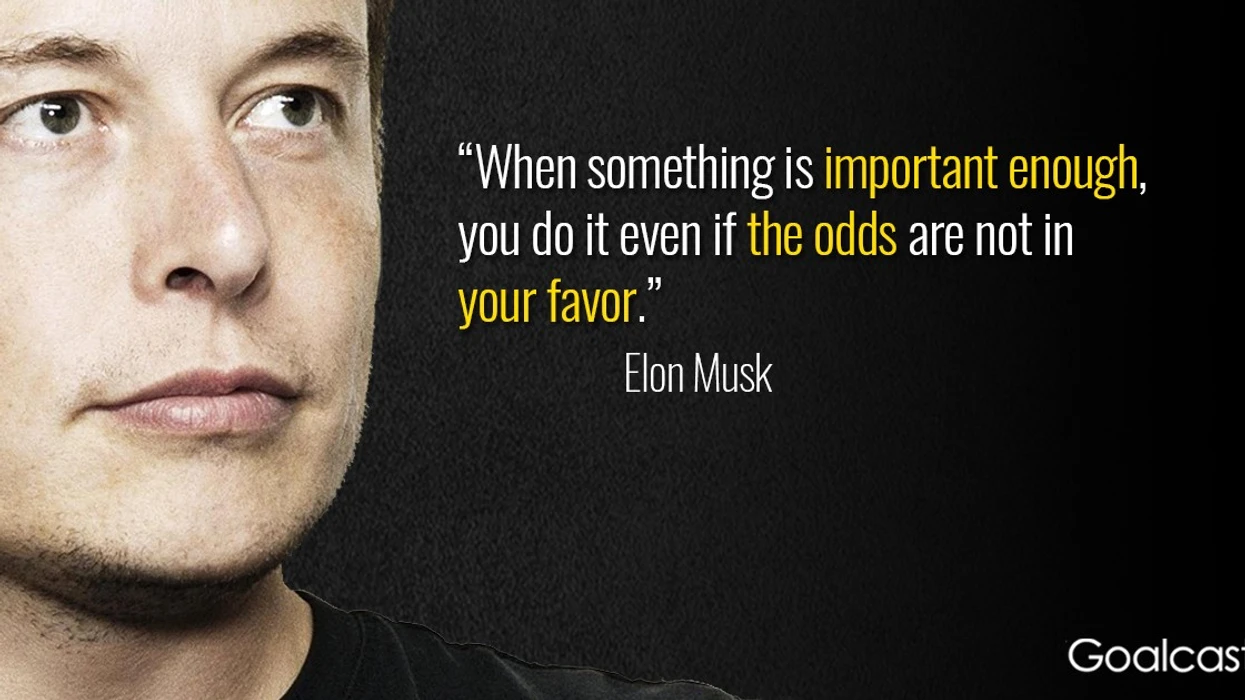So, you've decided it's time to divest from Elon Musk's empire. But where do you even begin? As one of the most influential figures in modern business, Elon Musk has his hands in everything from electric cars to space travel. Whether it's Tesla, SpaceX, Neuralink, or Twitter, his influence is massive. If you're looking to distance yourself financially from his ventures, this guide will walk you through the process step by step.
Let’s face it, Elon Musk is polarizing. Some people see him as a visionary genius who’s paving the way for a sustainable future. Others? Well, they might not agree with his methods or his decisions. Whatever your reasons may be, divesting from Elon Musk isn’t as simple as selling a few stocks. It requires understanding his business empire, identifying your exposure, and making strategic moves.
This article isn’t just about telling you what to sell or buy—it’s about giving you the tools to make informed decisions. We’ll cover everything from evaluating your portfolio to finding alternative investments that align with your values. Let’s dive in and figure out how to untangle yourself from Musk’s web without losing sight of your financial goals.
Read also:The Liquidator Jeff Schwarz Net Worth The Man Who Turns Trash Into Treasure
Table of Contents
- Understanding Elon Musk's Business Empire
- Evaluating Your Current Investments
- Steps to Divest From Elon Musk
- Finding Ethical Alternatives
- The Impact of Divesting
- Common Questions About Divesting
- Legal Considerations
- Tax Implications of Divesting
- The Emotional Side of Divesting
- Conclusion: Taking Control of Your Investments
Understanding Elon Musk's Business Empire
Before we jump into the nitty-gritty of divesting, it’s important to understand just how vast Elon Musk’s business empire really is. You’re probably familiar with Tesla and SpaceX, but there’s so much more going on behind the scenes. From Neuralink to Boring Company, Musk’s ventures span multiple industries, each with its own set of risks and rewards.
Here’s a quick breakdown of the major companies under Elon Musk’s umbrella:
- Tesla: The electric vehicle giant that’s revolutionizing the automotive industry.
- SpaceX: A private space exploration company aiming to colonize Mars.
- Neuralink: A neurotechnology startup focused on brain-computer interfaces.
- Boring Company: Building underground tunnels to solve urban transportation issues.
- Twitter: Yes, the social media platform is now part of Musk’s empire.
Knowing where your money is invested is crucial when it comes to divesting. Even if you don’t own Tesla shares directly, you might still have indirect exposure through mutual funds or ETFs. This brings us to our next step—evaluating your portfolio.
Why Divestment Matters
Divesting isn’t just about making financial changes; it’s also about aligning your investments with your personal values. Whether you disagree with Elon Musk’s leadership style, his environmental impact, or his social media antics, divesting allows you to take a stand. It’s about voting with your wallet and supporting companies that reflect your beliefs.
Evaluating Your Current Investments
Now that you know what you’re up against, it’s time to assess your current investment portfolio. This is where things can get tricky because Musk’s companies are often bundled into larger investment vehicles like index funds and ETFs. So, how do you identify your exposure?
Read also:Cardi B Heritage A Deep Dive Into Her Roots And Cultural Impact
Start by reviewing all your investment accounts, including:
- Individual stocks
- Mutual funds
- Exchange-traded funds (ETFs)
- Retirement accounts like 401(k)s or IRAs
Look for any mention of Tesla, SpaceX, or other Musk-related companies. If you’re unsure, consult your financial advisor or use online tools to analyze your holdings. Once you’ve identified your exposure, you’ll be better equipped to make informed decisions.
Tools to Help You Evaluate
There are several resources available to help you evaluate your portfolio:
- Bloomberg: Offers detailed insights into company holdings and performance.
- Morningstar: Provides comprehensive data on mutual funds and ETFs.
- Yahoo Finance: A great resource for tracking stock prices and news.
Remember, knowledge is power. The more you know about your investments, the easier it will be to divest strategically.
Steps to Divest From Elon Musk
Once you’ve evaluated your portfolio, it’s time to take action. Divesting doesn’t have to be a drastic move—you can start small and gradually reduce your exposure over time. Here’s a step-by-step guide to help you get started:
Step 1: Sell Direct Holdings
If you own Tesla shares or any other Musk-related stocks directly, consider selling them. Be mindful of any tax implications, as selling stocks can trigger capital gains taxes. Consult with a tax professional if you’re unsure about the specifics.
Step 2: Adjust Mutual Fund and ETF Holdings
Many mutual funds and ETFs include Tesla as part of their portfolio. If you want to eliminate this exposure, look for funds that exclude Musk’s companies. There are plenty of options out there, including socially responsible funds that focus on ethical investing.
Step 3: Reallocate Your Portfolio
After selling off your Musk-related investments, it’s important to reallocate your portfolio. Don’t leave your money sitting idle—invest it in companies that align with your values. This brings us to our next section…
Finding Ethical Alternatives
Divesting from Elon Musk doesn’t mean you have to sacrifice financial returns. There are plenty of ethical alternatives out there that offer strong growth potential. Here are a few ideas to consider:
Renewable Energy Companies
While Tesla is leading the charge in electric vehicles, there are other companies making significant strides in renewable energy. Look into companies specializing in solar, wind, and hydrogen power. These industries are poised for growth as the world shifts toward cleaner energy sources.
Technology Innovators
If you’re interested in cutting-edge technology but want to avoid Musk’s ventures, consider investing in companies focused on artificial intelligence, quantum computing, or cybersecurity. These sectors are ripe with opportunities for innovation and growth.
Socially Responsible Funds
For a more hands-off approach, consider investing in socially responsible funds. These funds screen out companies that don’t meet certain ethical criteria, ensuring your money is invested in alignment with your values.
The Impact of Divesting
Divesting from Elon Musk isn’t just a personal decision—it can also have a broader impact. By redirecting your investments, you’re sending a message to the market about what you value. While individual divestment may not have an immediate impact on Musk’s companies, collective action can make a difference.
Think about the fossil fuel divestment movement, which has successfully pressured major institutions to reduce their investments in oil and gas. Similarly, ethical investors can influence the direction of the market by supporting companies that prioritize sustainability and social responsibility.
Common Questions About Divesting
Divesting can raise a lot of questions, especially for first-time investors. Here are some of the most common ones:
Will Divesting Hurt My Financial Returns?
Not necessarily. Ethical investing doesn’t mean sacrificing financial performance. In fact, many socially responsible funds have outperformed traditional funds in recent years. By focusing on companies with strong governance and sustainability practices, you may even enhance your long-term returns.
How Long Does Divestment Take?
The timeline for divesting depends on your portfolio size and complexity. For small portfolios, the process can be completed in a matter of weeks. Larger portfolios may take longer, especially if you need to consult with financial advisors or adjust retirement accounts.
What If I Change My Mind Later?
Investing is not a one-time decision—it’s an ongoing process. If you decide to reinvest in Musk’s companies later, you can always adjust your portfolio accordingly. Flexibility is key when it comes to managing your investments.
Legal Considerations
Before diving into divestment, it’s important to consider any legal implications. Depending on your investment accounts and tax situation, divesting could trigger certain obligations. Here are a few things to keep in mind:
Tax Implications
Selling stocks or mutual funds can result in capital gains taxes. If you’ve held these investments for more than a year, you’ll be subject to long-term capital gains rates. Short-term gains, on the other hand, are taxed at your ordinary income rate. Be sure to factor in these costs when planning your divestment strategy.
Retirement Account Rules
If you’re divesting through a retirement account like a 401(k) or IRA, be aware of any restrictions or fees associated with trading. Some accounts may limit the number of trades you can make within a certain timeframe, so plan accordingly.
Tax Implications of Divesting
Taxes can significantly impact the effectiveness of your divestment strategy. To minimize the financial burden, consider the following tips:
- Harvest Losses: If you have other investments with unrealized losses, consider selling them to offset gains from divesting.
- Use Tax-Advantaged Accounts: If possible, divest through tax-advantaged accounts like IRAs to avoid immediate tax consequences.
- Consult a Professional: Tax laws can be complicated, so don’t hesitate to seek advice from a tax professional or financial advisor.
By planning ahead, you can reduce the tax impact of divesting and keep more of your hard-earned money.
The Emotional Side of Divesting
Let’s not forget the emotional aspect of divesting. Money is deeply tied to our values and identity, so making changes to your investment portfolio can stir up a range of emotions. It’s normal to feel anxious or uncertain about the future, but remember that you’re taking control of your financial destiny.
Here are a few tips for managing the emotional side of divesting:
- Stay Focused on Your Goals: Keep reminding yourself why you’re divesting and what you hope to achieve.
- Seek Support: Talk to friends, family, or financial advisors who can offer guidance and reassurance.
- Embrace Change: Change can be scary, but it’s also an opportunity for growth and self-discovery.
Ultimately, divesting is about aligning your investments with your values. Trust the process and believe in your ability to make a positive impact.
Conclusion: Taking Control of Your Investments
In conclusion, divesting from Elon Musk is a powerful way to take control of your financial future and align your investments with your values. Whether you’re motivated by ethical concerns, financial considerations, or personal beliefs, the steps outlined in this guide can help you navigate the process with confidence.
Remember, divesting doesn’t mean giving up on innovation or growth. There are countless ethical alternatives out there that offer exciting opportunities for investors. By reallocating your portfolio, you can support companies that prioritize sustainability, social responsibility, and good governance.
So, what are you waiting for? Take the first step today and start building a portfolio that reflects who you are and what you believe in. And don’t forget to share this article with others who might be considering divesting—let’s create a movement of ethical investors together!


